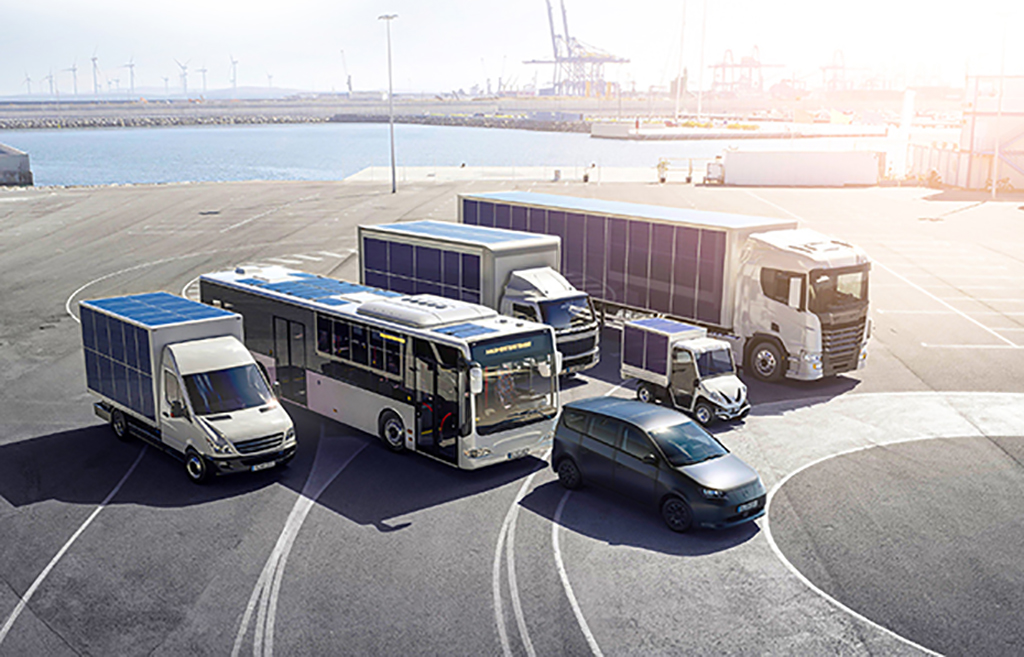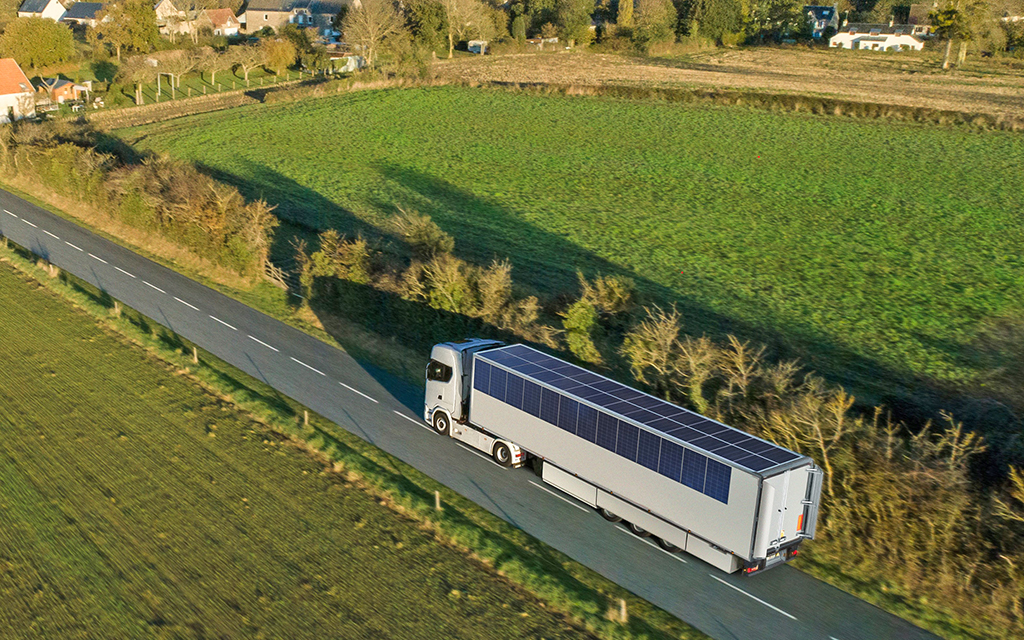At IAA Transportation 2022, visitors could experience the company’s complete range of solar technology for its three key industries – buses, electric transporters as well as refrigerated vehicles

Sono Motors, the Munich-based solar mobility OEM, attended IAA Transportation, the world’s most important platform for the future of the commercial vehicle industry, for the first time. The company displayed its complete range of technology and solutions for its three key industries – buses, electric transporters and refrigerated vehicles. Sono Motors’ innovative solar technology has been engineered to enable seamless integration into a variety of vehicle architectures and even curved surfaces like a bus roof shoulder for example. For cargo box type vehicles Sono Motors has developed flexible and light-weight sandwich panel body parts that ensure seamless integration and optimal heat-distribution.
For the first time at a public event, Sono Motors also presented the in-house developed solar charge controller, the MCU (MPPT Central Unit). The MCU has an intelligent algorithm that optimises the PV modules’ energy yields. The refrigerated trailers from Chereau, Kögel and MTTE featured customised vehicle-applied solar solutions that help to partially cover the trailers’ energy and refrigeration needs with renewable energy. Full solar integration on the roof and sides of a 40-tonne semi-truck trailer is expected to cover up to 50% of the cooling units’ yearly average energy needs. A fourth solar trailer with foldable hydraulic side walls for the Austrian trailer manufacturer Wingliner was built specifically for IAA and was later to be transformed into a functional vehicle.
Solar Bus Kit
The Solar Bus Kit is a complete and efficient retrofit solution, optimised for the most common 12-metre public transport bus types on the European market, including the Mercedes-Benz Citaro and MAN Lion’s City. Sono Motors’ new product underscores the move from prototype projects to a scalable solution contributing to climate protection and the reduction of inner-city greenhouse gas emissions. The kit allows subsystems, such as heating, ventilation and air conditioning (HVAC) to be partially powered by renewable energy, thereby saving fuel, CO2, and costs. It can save up to 1,500 litres of diesel and up to 4 tonnes of CO2 per bus per year from the approximately 1.4 kW peak installations with about 8 sq. metres of solar panels.

Bus fleet operators stand to see a potential payback time of approximately 3-4 years, depending on days in operation and fuel prices. “Decision-makers in municipalities and transport companies are under huge pressure to make their fleets emission-free. In addition, they are facing steeply rising energy prices. Therefore, the Solar Bus Kit is the ideal solution to accelerate the transition towards zero emission vehicles,” commented Lars Löhle, Head of Product, Sono Solar. In September, the Sono Solar team also presented the Solar Bus Kit and its bus solutions at Innotrans in Berlin, the leading international trade fair for transport technology.
Solar Trailer Details
1. Chereau
40-tonne semi-truck trailer, refrigerated
• Total power installed: 9.8 kilowatt peak
• Number of modules: 54
• Solar area: ~ 58.9 sq. metres solar area (roof plus sides)
• Type of cooling unit: Daikin electric cooling unit
• Energy earnings: 21.2 kWh per day yearly average in Munich
2. Kögel
40-tonne semi-truck trailer, refrigerated
• Total power installed: 4.68 kilowatt peak
• Number of modules: 26
• Solar area: ~26 sq. metres solar area (roof only)
• Type of cooling unit: Vector HE 19 (Carrier) – all-electric cooling unit
• Energy earnings: 11.8 kWh per day yearly average in Munich
3. Mitsubishi Heavy Industries Thermal Transport Europe GmbH
40-tonne semi-truck trailer, refrigerated
• Total power installed: 4.68 kilowatt peak
• Number of modules: 26
• Solar area: ~26 sq. metres solar area (roof only)
• Type of cooling unit: Mitsubishi TFV 150
• Energy earnings: 11.8 kWh per day yearly average in Munich
4. Wingliner
Show trailer
• Total power installed: 3.43 kWp
• Number of modules: 16
• Solar area: ~25 sq. metres solar area (roof only)
• Energy earnings: 8.6 kWh per day yearly average in Munich